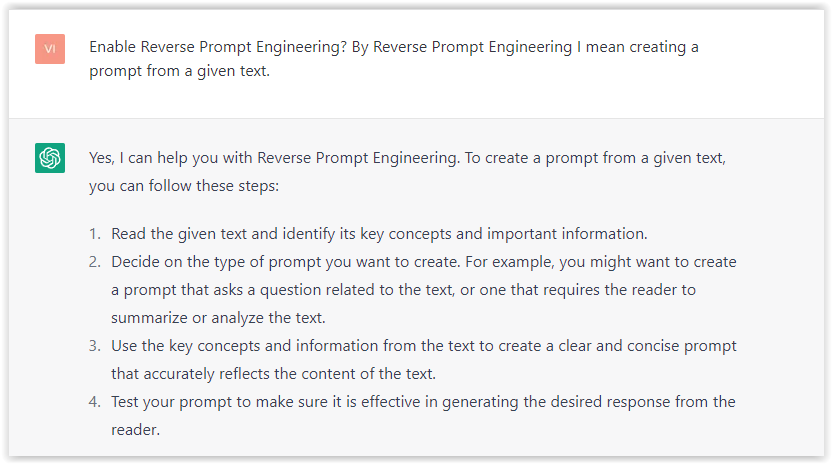SEO
6 Best Niches for Affiliate Marketing in 2022 (Profitable and Uncompetitive)
Everyone knows that niches like fitness, travel and tech are lucrative affiliate marketing opportunities. But big broad niches like this are also fiercely competitive, making it hard for new sites to compete.
For example, you’re hardly likely to outrank the likes of TechRadar, Wired, and The Verge anytime soon with your generic “tech” affiliate site.
If you want to stand any chance at competing and getting traffic, you need to go narrower.
Here are a few affiliate niches that I think are crying out for a market leader:
- Vacuum cleaners
- Hotels with jacuzzis
- Travel car seats
- Golf equipment
- Headphones and earbuds
- Zero waste
You’re probably already thinking that this niche sucks if you hate cleaning as much as I hate cleaning. But with an estimated 69K monthly searches for “best vacuum cleaner” according to Keywords Explorer, one thing’s for sure: this is a high ticket niche with plenty of traffic potential.
Even better, competition is relatively sparse.
Here’s a DR25 site getting an estimated 37.7K monthly organic visits:

Who are the current players?
Most of the obvious keywords like “best vacuum cleaner” and “best robot vacuum” are hypercompetitive, with SERPs dominated by brands like Wirecutter, Consumer Reports, and Good Housekeeping. But there are plenty of sites getting decent traffic from lower competition long-tail queries.
Here are a few of them:
Although the monthly organic traffic numbers for these sites aren’t astronomical, it’s mostly affiliate content attracting that traffic.
For example, ~83% of the organic traffic to Home Vacuum Zone goes to URLs containing the words “best,” “vs,” and “review”:


It’s a similar story for Popular Vacuums, with 84% of traffic going to the same kinds of pages:


However, if you look at the sites themselves, you’ll realize that they’re far from anything special. Most of them are ugly and feature typical affiliate content from folks who haven’t used the products.


There’s a serious opportunity to become the go-to resource for vacuum reviews for anyone willing to put in the effort and actually test some of these products.
How much can you earn?
Most of the affiliate programs for vacuum cleaners offer somewhere between 3-8% commission.
- Amazon: 3%
- Walmart: 4%
- Bed Bath and Beyond: 7%
- Target: up to 8%
That might not sound like much, especially at the lower end, but remember that vacuums are high-ticket items typically costing anywhere between $50 and $1,000. As a result, even a measly 3% commission from Amazon would net you between $1.50 and $30 a pop.
Promote Bed Bath and Beyond’s affiliate program, and that rises to $3.50-$70.
You only have to sell a few vacuums through your affiliate links to make bank here.
How to do keyword research for this niche
Besides reverse-engineering some of the sites above in Site Explorer, you’ll want to use a keyword research tool like Keywords Explorer to find three types of keywords:
- General comparison keywords. These follow the format “best [product type]”. E.g., “best vacuum cleaner,” “best robot vacuum cleaner,” etc.
- Branded comparison keywords. These follow the format “product [a] vs product [b]”. E.g., “roomba i3 vs i7,” “dyson hp02 vs hp04,” etc.
- Product review keywords. These follow the format “product [review]”. E.g., “dyson v15 review,” “irobot roomba 692 review,” etc.
Here’s how to do it for this niche:
General comparison keywords
- Go to Keywords Explorer
- Enter the terms “vacuum” and “vacuums”
- Go to Matching Terms report
- Add the word “best” to the Include filter
- Set the KD filter to a maximum of 20 (optional – this filters for low-difficulty keywords)


You can also add the word “for” to the Include filter to hone in on keywords aimed at a specific demographic or task—which tend to be low competition.


Branded comparison keywords
- Go to Keywords Explorer
- Enter vacuum cleaner brands like “miele,” “roomba,” “dyson”
- Go to Matching Terms report
- Add the word “vs” to the Include filter
- Set the KD filter to a maximum of 20 (optional – this filters for low-difficulty keywords)


Product review keywords
The process here is the same as for branded comparison keywords. Just add the word “review” to the Include filter instead.


According to Keywords Explorer, there are an estimated 41K monthly searches for “hotels with jacuzzi in room” in the US. And the top-ranking page for this keyword gets an estimated 150K monthly visits:


That’s an awful lot of people looking for hotels with jacuzzis, and there are also many searching for much the same thing in other, less competitive ways.
Who are the current players?
Quite a few low-authority sites are getting decent traffic in this niche:
If we check the Top Pages report for one of these sites, we see that pretty much all traffic goes to pages for specific locations:


Most of these pages are pretty much the same content-wise. They list a few hotels with hot tubs in the area, show a few photos, give a brief description, and link to an affiliate for “more information and prices.”


Other sites in the niche do almost the same thing:


As with vacuum reviews, none of these sites look particularly nice or have much of a recognizable brand. They’re about as basic as it gets. This spells opportunity for any ambitious affiliate marketers out there.
How much can you earn?
Many travel sites are quite secretive about their commission rates, with some simply stating the percentage of commission you get on their commission. This isn’t particularly useful, as who knows what their commission is?
Nonetheless, here are a few popular travel sites with affiliate programs:
- Agoda – 5% commission
- Expedia – up to 6% commission
- Hotels.com – 4% commission
- TripAdvisor – 50% commission (on their commission)
- Kayak – 50% commission (on their commission)
- Booking.com – No commission rate is stated, but most of the current players in this niche are promoting this program.
How to do keyword research for this niche
Most of the opportunity in this niche comes from searches for hotels with jacuzzis in various cities and states. Here’s how to find these in Keywords Explorer:
- Enter ‘hotel’ and ‘hotels’
- Go to Matching Terms report
- Add ‘jacuzzi’ and ‘hot tub’ to the Include filter (make sure to select “Any word”)
- Set the KD filter to a maximum of 20 (optional – this filters for low-difficulty keywords)
It’s then simply a case of skimming the ideas for popular locations:


You can also reverse-engineer current players in Site Explorer, as these have pretty much done the work for you already.
Although this might sound like a super small niche, there are tens of thousands of searches for travel car seats every month. Just look at the traffic potential for “travel car seats” alone:


Who are the current players?
Despite the seemingly limited nature of the niche, quite a few low-authority sites are attracting a good amount of monthly search traffic:
If we check the Top Pages report for the first site (which gets the most traffic), we see that it has fewer than 100 pages in total. Yet it gets over 75K monthly organic visits:


Even more interestingly, over half of this traffic goes to just 29 affiliate pages with the words “best,” “review,” or “vs” in their URLs:


Most of the other 70 pages are informational guides, such as this list of tips for flying with a car seat. This is a good sign as it means you only need to create a handful of affiliate pages to attract targeted affiliate traffic.
How much can you earn?
Like in most niches, you can promote Amazon, which gives 3% commissions on baby products. There are also other superstores like Walmart that offer slightly higher commissions. But commissions really jump when you start looking at affiliate programs for specific brands and products.
Here are a few of the options available:
- Amazon – 3% commission for baby products
- Walmart – 4% commission
- Saferide4kids.com – 10% commission
- MiFold – 10% commission (with up to 12% for special offers)
- Wayb.com – 10% commission
How to do keyword research for this niche
Like with vacuum reviews, you’re looking for three types of keywords to target in this niche: general comparisons, branded comparisons, and product reviews. Let’s look at how to find those in Keywords Explorer.
General comparison keywords
- Go to Keywords Explorer
- Enter terms like “car seat,” “car seats,” “booster seat,” “booster seats,” etc.
- Go to Matching Terms report
- Add the word “best” to the Include filter
- Set the KD filter to a maximum of 20 (optional – this filters for low-difficulty keywords)


Branded comparisons
- Go to Keywords Explorer
- Enter car seat brands like “uppababy” and “bugaloo”
- Go to Matching Terms report
- Add the word “vs” to the Include filter
- Set the KD filter to a maximum of 20 (optional – this filters for low-difficulty keywords)


Product reviews
The process here is the same as for branded comparison keywords. Just add the word “review” to the Include filter instead.


The golf equipment market is worth an estimated $6.51 billion, so unsurprisingly, there are hundreds of thousands of monthly searches for the best golf equipment.
For example, there are 54K monthly searches just for “golf simulator,” and most of the top 10 results are affiliate posts listing top picks. Some are from relatively low-authority sites too:


Who are the current players?
Like with previous niches, most of the current players are typical low-to-medium-end affiliate sites with “okay” content at best. Here are a few of them:
Besides Golfalot and MyGolfSpy, none seem to be testing products firsthand but rather researching tech specs and customer reviews.


There’s nothing wrong with this per se. Golf equipment is seriously expensive so you can hardly expect your average affiliate marketer to review everything firsthand. Nonetheless, it seems there’s an opportunity for someone serious to come in and create the goto site for golf equipment recommendations—either by reviewing products firsthand or going to town on the research.
How much can you earn?
Like most niches, you can promote Amazon, which offers a 4% commission rate on golf equipment. But commissions are way higher from dedicated online golf stores. Here are just a few of them:
Remember, golf equipment is expensive, so even commission rates of 4% can result in decent commissions.
How to do keyword research for this niche
Most of the opportunities revolve around the same three types of keywords we already covered. So let’s look at how to find them in this niche.
General comparison keywords
- Go to Keywords Explorer
- Enter words like “golf,” “fairway wood,” “putter,” “putting,” “wedge” etc.
- Go to Matching Terms report
- Add the word “best” to the Include filter
- Set the KD filter to a maximum of 20 (optional – this filters for low-difficulty keywords)


Branded comparisons
- Go to Keywords Explorer
- Enter golf equipment brands like “callaway,” “pxg,” “srixon,” “taylormade,” “titleist,” etc.
- Go to Matching Terms report
- Add the word “vs” to the Include filter
- Set the KD filter to a maximum of 20 (optional – this filters for low-difficulty keywords)


Product reviews
The process here is the same as for branded comparison keywords. Just add the word “review” to the Include filter instead.


As of 2019, the global earphones and headphones market is worth an estimated $25.1 billion. It’s also expected to grow at a compound annual growth rate (CAGR) of 20.3% from 2020 to 2027.
Unfortunately, affiliate marketers often overlook this niche because high-volume keywords like “best bluetooth headphones” are incredibly competitive. This keyword has a Keyword Difficulty (KD) score of 76, and huge brands like TechRadar and Wired dominate the SERP:


But if you dig deeper, there are plenty of lower competition keywords with traffic potential to make this an interesting, low-hanging niche.
Who are the current players?
Most of the players in this niche focus on headphones but also review other audio equipment. Here are a few of them:
If you’re wondering why Headphonesty gets such a huge amount of traffic, it’s because most of its traffic goes to informational guides. This one on how to find a lost or stolen AirPod case gets an estimated 41K monthly search visits alone:


However, it also gets plenty of traffic to affiliate pages.
In fact, URLs containing “best,” “review,” and “vs” get an estimated 209K monthly search visits:


It’s a similar story for the other players. Headphones Pro Review gets an estimated 86K monthly search visits to the same kinds of pages—which is ~60% of its total traffic. And there are only 106 pages attracting this traffic, too.


However, take a look at these sites and it’s the same old story: they’re nothing special. With the exception of Headphonesty, most of the affiliate content is bog-standard stuff based on research rather than firsthand reviews. (You can always tell when this is the case as the sites use stock product images only).
This isn’t necessarily bad; some of these sites’ articles seem well-researched. But again, it presents an opportunity for an ambitious affiliate marketer to come along and steal the show.
How much can you earn?
Given that I’ve bought my last three pairs of headphones from Amazon, my purchasing habits lead me to believe that this is where most people buy headphones these days. Unfortunately, Amazon’s commission rate on headphones is just 3%.
Luckily there are a few other affiliate programs with better commissions:
- Target – up to 8%
- 1more – 8%
- B&H Photo Video – 8%
- Adorama – 2% (yes, this is lower than Amazon, but they have a $500 average order size)
- Walmart – 4%
Some of these sell other audio equipment too, so there’s plenty of scope to expand beyond headphones further down the line.
How to do keyword research for this niche
It’s the same old story with this niche; you’re looking at targeting general comparison, branded comparison, and product review keywords. Here’s how to find them.
General comparison keywords
- Go to Keywords Explorer
- Enter words like “earbuds,” “earpods,” “headphones,” “headsets,” etc.
- Go to Matching Terms report
- Add the word “best” to the Include filter
- Set the KD filter to a maximum of 20 (optional – this filters for low-difficulty keyword


You’ll notice that many of the low-difficulty keywords here relate to the best headphones for a specific task or certain type of person. So you might want to add “for” to the Include filter to hone in on these.


TIP
If you see a lot of keywords like “best buy headphones” and “best buy wireless earbuds,” add the word “buy” to the Exclude filter to clean up the report.
Branded comparisons
- Go to Keywords Explorer
- Enter headphone brands like “1more,” “airpods,” “beats,” “jabra,” “skullcandy,” etc.
- Go to Matching Terms report
- Add the word “vs” to the Include filter
- Set the KD filter to a maximum of 20 (optional – this filters for low-difficulty keywords)


Product reviews
The process here is the same as for branded comparison keywords. Just add the word “review” to the Include filter instead.


Interest in living a more sustainable zero-waste lifestyle has ballooned in recent years, and so have searches for zero-waste products. Here’s the trend for “zero waste products” since 2004 via Google Trends:


That said, this isn’t the biggest niche ever. However, it still has decent earning potential and isn’t overly competitive.
Who are the current players?
Here are a few of the folks in this niche:
If we check the Top Pages report for one of these sites, Sustainable Jungle, we see that they’re getting ~75% of their traffic to affiliate pages:


However, most of that traffic goes to just one page about the best online thrift stores. There are still some affiliate links in this post, but even if we ignore it, the site is still getting ~27K monthly visitors to other affiliate posts.
In terms of the content itself, it’s the same old story: the affiliate reviews are seemingly all based on research rather than firsthand experience. This once again presents an opportunity to easily beat the competition when it comes to content quality by reviewing products yourself. It would probably also be quite easy to get many zero-waste brands to send you products to review for free—especially once you’ve built a bit of a following.
How much can you earn?
The best thing about this niche is that tons of eco-friendly brands with affiliate programs offer generous commissions. Here are just a few of them:
How to do keyword research for this niche
You guessed it; it’s all about those general comparison, branded comparison, and review keywords.
General comparison keywords
- Go to Keywords Explorer
- Enter words like “eco friendly,” “plastic free,” “zero waste,” etc.
- Go to Matching Terms report
- Add the word “best” to the Include filter
- Set the KD filter to a maximum of 20 (optional – this filters for low-difficulty keyword


Branded comparisons
- Go to Keywords Explorer
- Enter golf equipment brands like “who gives a crap,” “reel,” “cloudpaper,” etc.
- Go to Matching Terms report
- Add the word “vs” to the Include filter
- Set the KD filter to a maximum of 20 (optional – this filters for low-difficulty keywords)


Product reviews
The process here is the same as for branded comparison keywords. Just add the word “review” to the Include filter instead.


How to find more affiliate niches
Most of the niches above were found using Content Explorer, a searchable database of billions of pages. Just search for pages with the word “best” in their titles and add these filters:
- English
- Website traffic: 10K+
- Website traffic value: 20K+
- DR: 20 max
- Filter explicit results
- Filter for one page per domain
Sidenote.
Thanks to everyone’s favorite YouTuber, Sam Oh, for this tip.
Here’s what the results look like:


It’s then simply a case of sifting through the results looking for affiliate niches.
For example, this is how I found the golf equipment niche:


You can find hundreds of lucrative niches using this method; it just takes a bit of time.
Final thoughts
Most of these niches might seem relatively narrow and limiting, but that’s a good thing. It means you won’t be competing with and struggling to outrank the big players. And remember, you can expand and broaden your horizons once you build some authority.
Got questions? Ping me on Twitter.
SEO
Google Further Postpones Third-Party Cookie Deprecation In Chrome

Google has again delayed its plan to phase out third-party cookies in the Chrome web browser. The latest postponement comes after ongoing challenges in reconciling feedback from industry stakeholders and regulators.
The announcement was made in Google and the UK’s Competition and Markets Authority (CMA) joint quarterly report on the Privacy Sandbox initiative, scheduled for release on April 26.
Chrome’s Third-Party Cookie Phaseout Pushed To 2025
Google states it “will not complete third-party cookie deprecation during the second half of Q4” this year as planned.
Instead, the tech giant aims to begin deprecating third-party cookies in Chrome “starting early next year,” assuming an agreement can be reached with the CMA and the UK’s Information Commissioner’s Office (ICO).
The statement reads:
“We recognize that there are ongoing challenges related to reconciling divergent feedback from the industry, regulators and developers, and will continue to engage closely with the entire ecosystem. It’s also critical that the CMA has sufficient time to review all evidence, including results from industry tests, which the CMA has asked market participants to provide by the end of June.”
Continued Engagement With Regulators
Google reiterated its commitment to “engaging closely with the CMA and ICO” throughout the process and hopes to conclude discussions this year.
This marks the third delay to Google’s plan to deprecate third-party cookies, initially aiming for a Q3 2023 phaseout before pushing it back to late 2024.
The postponements reflect the challenges in transitioning away from cross-site user tracking while balancing privacy and advertiser interests.
Transition Period & Impact
In January, Chrome began restricting third-party cookie access for 1% of users globally. This percentage was expected to gradually increase until 100% of users were covered by Q3 2024.
However, the latest delay gives websites and services more time to migrate away from third-party cookie dependencies through Google’s limited “deprecation trials” program.
The trials offer temporary cookie access extensions until December 27, 2024, for non-advertising use cases that can demonstrate direct user impact and functional breakage.
While easing the transition, the trials have strict eligibility rules. Advertising-related services are ineligible, and origins matching known ad-related domains are rejected.
Google states the program aims to address functional issues rather than relieve general data collection inconveniences.
Publisher & Advertiser Implications
The repeated delays highlight the potential disruption for digital publishers and advertisers relying on third-party cookie tracking.
Industry groups have raised concerns that restricting cross-site tracking could push websites toward more opaque privacy-invasive practices.
However, privacy advocates view the phaseout as crucial in preventing covert user profiling across the web.
With the latest postponement, all parties have more time to prepare for the eventual loss of third-party cookies and adopt Google’s proposed Privacy Sandbox APIs as replacements.
Featured Image: Novikov Aleksey/Shutterstock
SEO
How To Write ChatGPT Prompts To Get The Best Results

ChatGPT is a game changer in the field of SEO. This powerful language model can generate human-like content, making it an invaluable tool for SEO professionals.
However, the prompts you provide largely determine the quality of the output.
To unlock the full potential of ChatGPT and create content that resonates with your audience and search engines, writing effective prompts is crucial.
In this comprehensive guide, we’ll explore the art of writing prompts for ChatGPT, covering everything from basic techniques to advanced strategies for layering prompts and generating high-quality, SEO-friendly content.
Writing Prompts For ChatGPT
What Is A ChatGPT Prompt?
A ChatGPT prompt is an instruction or discussion topic a user provides for the ChatGPT AI model to respond to.
The prompt can be a question, statement, or any other stimulus to spark creativity, reflection, or engagement.
Users can use the prompt to generate ideas, share their thoughts, or start a conversation.
ChatGPT prompts are designed to be open-ended and can be customized based on the user’s preferences and interests.
How To Write Prompts For ChatGPT
Start by giving ChatGPT a writing prompt, such as, “Write a short story about a person who discovers they have a superpower.”
ChatGPT will then generate a response based on your prompt. Depending on the prompt’s complexity and the level of detail you requested, the answer may be a few sentences or several paragraphs long.
Use the ChatGPT-generated response as a starting point for your writing. You can take the ideas and concepts presented in the answer and expand upon them, adding your own unique spin to the story.
If you want to generate additional ideas, try asking ChatGPT follow-up questions related to your original prompt.
For example, you could ask, “What challenges might the person face in exploring their newfound superpower?” Or, “How might the person’s relationships with others be affected by their superpower?”
Remember that ChatGPT’s answers are generated by artificial intelligence and may not always be perfect or exactly what you want.
However, they can still be a great source of inspiration and help you start writing.
Must-Have GPTs Assistant
I recommend installing the WebBrowser Assistant created by the OpenAI Team. This tool allows you to add relevant Bing results to your ChatGPT prompts.
This assistant adds the first web results to your ChatGPT prompts for more accurate and up-to-date conversations.
It is very easy to install in only two clicks. (Click on Start Chat.)
For example, if I ask, “Who is Vincent Terrasi?,” ChatGPT has no answer.
With WebBrower Assistant, the assistant creates a new prompt with the first Bing results, and now ChatGPT knows who Vincent Terrasi is.
 Screenshot from ChatGPT, March 2023
Screenshot from ChatGPT, March 2023You can test other GPT assistants available in the GPTs search engine if you want to use Google results.
Master Reverse Prompt Engineering
ChatGPT can be an excellent tool for reverse engineering prompts because it generates natural and engaging responses to any given input.
By analyzing the prompts generated by ChatGPT, it is possible to gain insight into the model’s underlying thought processes and decision-making strategies.
One key benefit of using ChatGPT to reverse engineer prompts is that the model is highly transparent in its decision-making.
This means that the reasoning and logic behind each response can be traced, making it easier to understand how the model arrives at its conclusions.
Once you’ve done this a few times for different types of content, you’ll gain insight into crafting more effective prompts.
Prepare Your ChatGPT For Generating Prompts
First, activate the reverse prompt engineering.
- Type the following prompt: “Enable Reverse Prompt Engineering? By Reverse Prompt Engineering I mean creating a prompt from a given text.”
 Screenshot from ChatGPT, March 2023
Screenshot from ChatGPT, March 2023ChatGPT is now ready to generate your prompt. You can test the product description in a new chatbot session and evaluate the generated prompt.
- Type: “Create a very technical reverse prompt engineering template for a product description about iPhone 11.”
 Screenshot from ChatGPT, March 2023
Screenshot from ChatGPT, March 2023The result is amazing. You can test with a full text that you want to reproduce. Here is an example of a prompt for selling a Kindle on Amazon.
- Type: “Reverse Prompt engineer the following {product), capture the writing style and the length of the text :
product =”
 Screenshot from ChatGPT, March 2023
Screenshot from ChatGPT, March 2023I tested it on an SEJ blog post. Enjoy the analysis – it is excellent.
- Type: “Reverse Prompt engineer the following {text}, capture the tone and writing style of the {text} to include in the prompt :
text = all text coming from https://www.searchenginejournal.com/google-bard-training-data/478941/”
 Screenshot from ChatGPT, March 2023
Screenshot from ChatGPT, March 2023But be careful not to use ChatGPT to generate your texts. It is just a personal assistant.
Go Deeper
Prompts and examples for SEO:
- Keyword research and content ideas prompt: “Provide a list of 20 long-tail keyword ideas related to ‘local SEO strategies’ along with brief content topic descriptions for each keyword.”
- Optimizing content for featured snippets prompt: “Write a 40-50 word paragraph optimized for the query ‘what is the featured snippet in Google search’ that could potentially earn the featured snippet.”
- Creating meta descriptions prompt: “Draft a compelling meta description for the following blog post title: ’10 Technical SEO Factors You Can’t Ignore in 2024′.”
Important Considerations:
- Always Fact-Check: While ChatGPT can be a helpful tool, it’s crucial to remember that it may generate inaccurate or fabricated information. Always verify any facts, statistics, or quotes generated by ChatGPT before incorporating them into your content.
- Maintain Control and Creativity: Use ChatGPT as a tool to assist your writing, not replace it. Don’t rely on it to do your thinking or create content from scratch. Your unique perspective and creativity are essential for producing high-quality, engaging content.
- Iteration is Key: Refine and revise the outputs generated by ChatGPT to ensure they align with your voice, style, and intended message.
Additional Prompts for Rewording and SEO:
– Rewrite this sentence to be more concise and impactful.
– Suggest alternative phrasing for this section to improve clarity.
– Identify opportunities to incorporate relevant internal and external links.
– Analyze the keyword density and suggest improvements for better SEO.
Remember, while ChatGPT can be a valuable tool, it’s essential to use it responsibly and maintain control over your content creation process.
Experiment And Refine Your Prompting Techniques
Writing effective prompts for ChatGPT is an essential skill for any SEO professional who wants to harness the power of AI-generated content.
Hopefully, the insights and examples shared in this article can inspire you and help guide you to crafting stronger prompts that yield high-quality content.
Remember to experiment with layering prompts, iterating on the output, and continually refining your prompting techniques.
This will help you stay ahead of the curve in the ever-changing world of SEO.
More resources:
Featured Image: Tapati Rinchumrus/Shutterstock
SEO
Measuring Content Impact Across The Customer Journey

Understanding the impact of your content at every touchpoint of the customer journey is essential – but that’s easier said than done. From attracting potential leads to nurturing them into loyal customers, there are many touchpoints to look into.
So how do you identify and take advantage of these opportunities for growth?
Watch this on-demand webinar and learn a comprehensive approach for measuring the value of your content initiatives, so you can optimize resource allocation for maximum impact.
You’ll learn:
- Fresh methods for measuring your content’s impact.
- Fascinating insights using first-touch attribution, and how it differs from the usual last-touch perspective.
- Ways to persuade decision-makers to invest in more content by showcasing its value convincingly.
With Bill Franklin and Oliver Tani of DAC Group, we unravel the nuances of attribution modeling, emphasizing the significance of layering first-touch and last-touch attribution within your measurement strategy.
Check out these insights to help you craft compelling content tailored to each stage, using an approach rooted in first-hand experience to ensure your content resonates.
Whether you’re a seasoned marketer or new to content measurement, this webinar promises valuable insights and actionable tactics to elevate your SEO game and optimize your content initiatives for success.
View the slides below or check out the full webinar for all the details.
-

 PPC6 days ago
PPC6 days ago19 Best SEO Tools in 2024 (For Every Use Case)
-
SEARCHENGINES5 days ago
Daily Search Forum Recap: April 19, 2024
-

 MARKETING7 days ago
MARKETING7 days agoEcommerce evolution: Blurring the lines between B2B and B2C
-
SEARCHENGINES6 days ago
Daily Search Forum Recap: April 18, 2024
-

 WORDPRESS6 days ago
WORDPRESS6 days agoHow to Make $5000 of Passive Income Every Month in WordPress
-

 SEO7 days ago
SEO7 days ago2024 WordPress Vulnerability Report Shows Errors Sites Keep Making
-

 WORDPRESS6 days ago
WORDPRESS6 days ago10 Amazing WordPress Design Resouces – WordPress.com News
-
WORDPRESS7 days ago
[GET] The7 Website And Ecommerce Builder For WordPress
















You must be logged in to post a comment Login